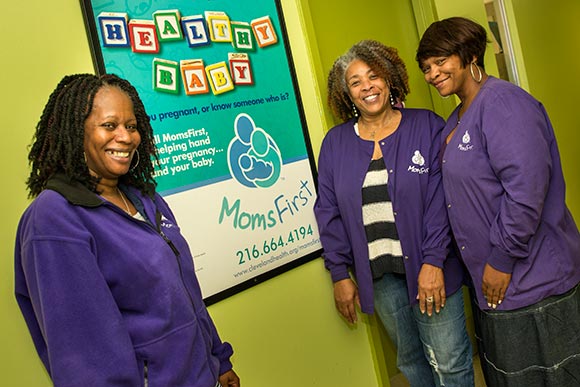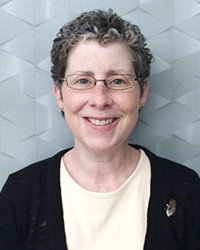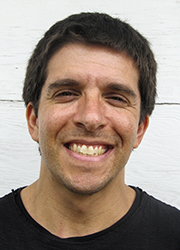MomsFirst lends a much needed hand to pregnant area teens
 Bob PerkoskiBridjetta Levison, Crystal Calhoun and Angela Gober-Woodson withe the Moms First program at The May Dugan Center
Bob PerkoskiBridjetta Levison, Crystal Calhoun and Angela Gober-Woodson withe the Moms First program at The May Dugan Center
It is a sobering statistic: African-American infants in Ohio die at more than twice the rate of white babies, according to 2014 data from the Ohio Department of Health. To battle that troubling number, the Cleveland nonprofit MomsFirst program offers critical support services and education to the area's pregnant and parenting population in an effort to reduce these potentially lethal outcomes.
In Cleveland, younger parents often need the most aid, says Lisa Matthews, program director for an organization recognizing its 25th anniversary. Last year, one-third of 1,823 mothers reached by MomsFirst were teenagers, some as young as 13.
Narrowing the disparity in infant mortality rates is the group's overall goal. Program participants, many of whom are students at the Cleveland Municipal School District (CMSD), receive individual service plans that screen them for postnatal depression and educate them on prenatal care, breastfeeding and safe sleep practices.
Community health workers visit new or expecting moms at home at least once a month, providing them with a much needed support system.
 Lisa Matthews"It's like having the big sister or mother they never had," says Matthews.
Lisa Matthews"It's like having the big sister or mother they never had," says Matthews.
Families stay enrolled in the program until their child is two years old. Finding underserved mothers quickly is vital considering the three leading causes of infant mortality - prematurity/pre-term births, sleep-related deaths and birth defects - usually take place before a child reaches its first year, Matthews says.
Infant death rates in African-American communities may derive from poverty and other environmental or social stressors. MomsFirst, on site at the nonprofit May Dugan Center in Ohio City, considers these factors in its implementation of fatherhood support services and educational programming.
In addition to its support of teenage mothers, MomsFirst sponsors teen-led summits and peer advisory sessions at eight CMSD schools. Boys and non-pregnant or parenting students are welcome at the sessions, which cover topics like family planning, child development and STD prevention.
For girls still in high school, pregnancy can curtail, if not outright eliminate, continuing education. To that end, MomsFirst helps its charges navigate day care, transportation, literacy issues and other barriers.
"Pregnancy doesn't have to mean the end of an educational career," says Matthews.
Juvenile detention centers are the nonprofit's newest venture. Pregnant offenders are given case plans, while those with and without children are provided with educational support. In combination, the services provided by MomsFirst can lift up a population in dire need of help, organization officials say.
"We still have a disparity that's unacceptable," Matthews says. "There is a long way to go."
This story is one of a Fresh Water series supported in part by the May Dugan Center.

